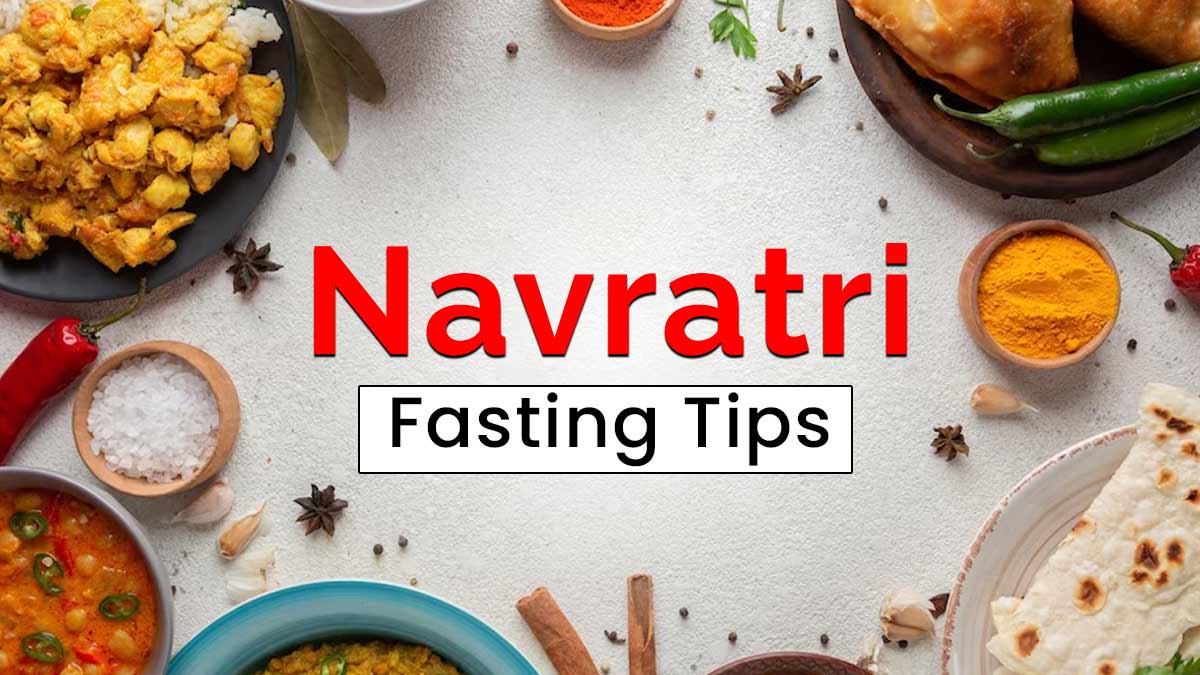
Navratri is an auspicious Hindu festival that is celebrated for nine days with utmost devotion. Besides all the festivities and rituals around it, people also indulge in fasting, which is one of the most challenging aspects of the festival. To successfully navigate Navratri fasting, one intriguing approach is to embrace the practice of intermittent fasting, says Ashish Rani, Assistant Manager - Dietetics, Aakash Healthcare, New Delhi, providing insights into how one can integrate the routine into the Navratri fasting regimen.
Table of Content:-
The Most Popular Intermittent Fasting (IF) Window

Intermittent Fasting (IF) is an eating pattern that does not follow traditional dieting guidelines, where you do not eat anything for a long stretch. Rather, it focuses on alternating between periods of nourishment and fasting, says Rani.
According to the dietician, it has gained popularity for its potential to enhance overall well-being and can also be tailored to align with your Navratri fasting schedule.
“The core principle is to confine your daily caloric intake within a specified time frame,” she says.
Ideally, the most popular IF window is the 16/8 regimen, which involves a 16-hour fasting period and an 8-hour window for eating, Rani explains.
During Navratri fasting, this strategy can be adjusted to sit well with the requirements of your faith and dietary preferences, she says.
Also Read: Navratri Diet Tips For Pregnant Women: Do’s And Don’ts
How To Incorporate IF Into Navratri Fasting

IF is said to hold several health benefits from cutting calories to aiding weight loss to enhancing overall wellbeing.
A study published in the Journal Cell Metabolism found that a six-hour window of time-restricted eating helps reduce calories and also lead to weight loss.
The study author Krista Varady said in a report by UIC today, “People love intermittent fasting because it’s easy,” adding, “People need to find diets that they can stick to long term. It’s definitely effective for weight loss, and it’s gained popularity because there are no special foods or apps necessary.”
She has conducted severe research around time-restricted eating, which sums up that IF is effective, not just in weight management but also in lowering blood pressure and reducing insulin resistance.
So how do you follow IF during Navratri? Dietician Rani provides some insights:
Seek nutritional guidance
Before going on a fasting routine during Navratri, it's important to consult a nutritionist or healthcare professional. Ensure that you do not compromise on your nutrition and prevent any form of nutritional deficiencies. This is when an expert can help you balance your fasting and nourishment.
Select your eating window
Choose a suitable fasting window for yourself. It can be a 16/8 time frame, such as consuming meals between 12 PM and 8 PM, or an alternative timeframe that goes well with your requirements, says Rani.
Stay hydrated
Throughout your fasting window, do not forget to drink plenty of fluids. “Maintaining adequate hydration during fasting hours is essential,” advises Rani. You can hydrate with water, herbal teas, and coconut water to sustain energy levels, she says.
Opt for balanced meals
Ensure that you incorporate fruits, vegetables, nuts, and dairy (if permitted) to guarantee a balanced intake of essential nutrients.
Also Read: Navratri Fasting Foods: Expert Lists Foods To Eat And Avoid
Foods To Add

Here are the foods you should include in your diet during Navratri:
- Fruits like apples, bananas, and citrus fruits
- Non-starchy vegetables like spinach, kale, and broccoli
- Almonds, walnuts, and pistachios
- Low-fat yoghurt or milk if you’re allowed to have dairy products.
- Grains like kuttu flour, samak rice, amaranth flour (rajgira), and singhara flour (chestnut)
Foods To Avoid
Here are the foods you should avoid during the fasting period:
- Wheat, rice, and other grains
- Processed and packaged food items
- Sweets and sugary beverages
- Deep-fried snacks
A Final Word
Fasting may backfire as it usually involves no eating. However, with IF your Navratri fasting experience can be smoother and healthier.
“Embracing intermittent fasting during Navratri offers a potential means to maintain your energy levels, support your spiritual journey, and enhance your overall well-being. Always remember that fasting should be approached thoughtfully and with the guidance of a nutritionist to ensure your nutritional needs are met,” says Dietician Rani.
“By selecting an appropriate fasting schedule and making wise dietary choices, you can make the most of this sacred period while upholding your health and vitality,” she concludes.
Also watch this video
How we keep this article up to date:
We work with experts and keep a close eye on the latest in health and wellness. Whenever there is a new research or helpful information, we update our articles with accurate and useful advice.
Current Version